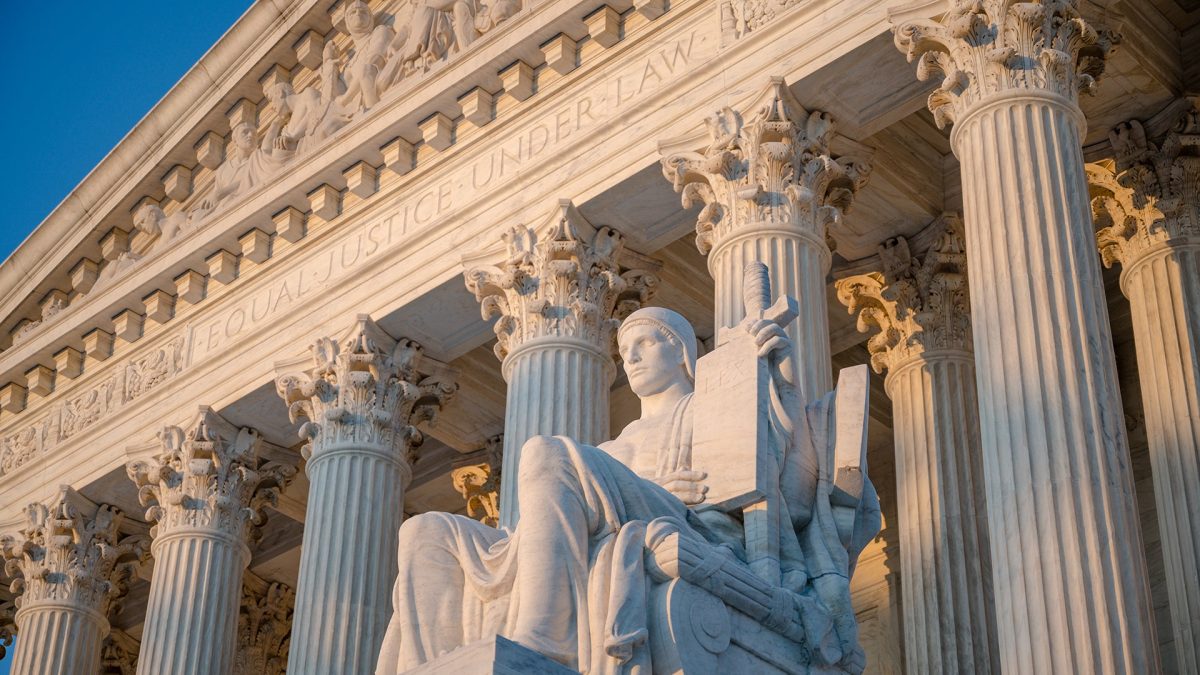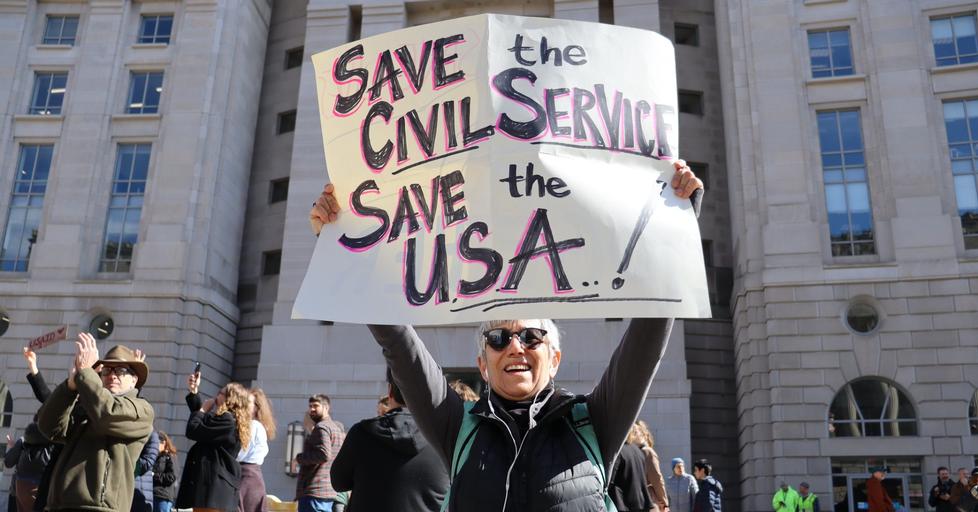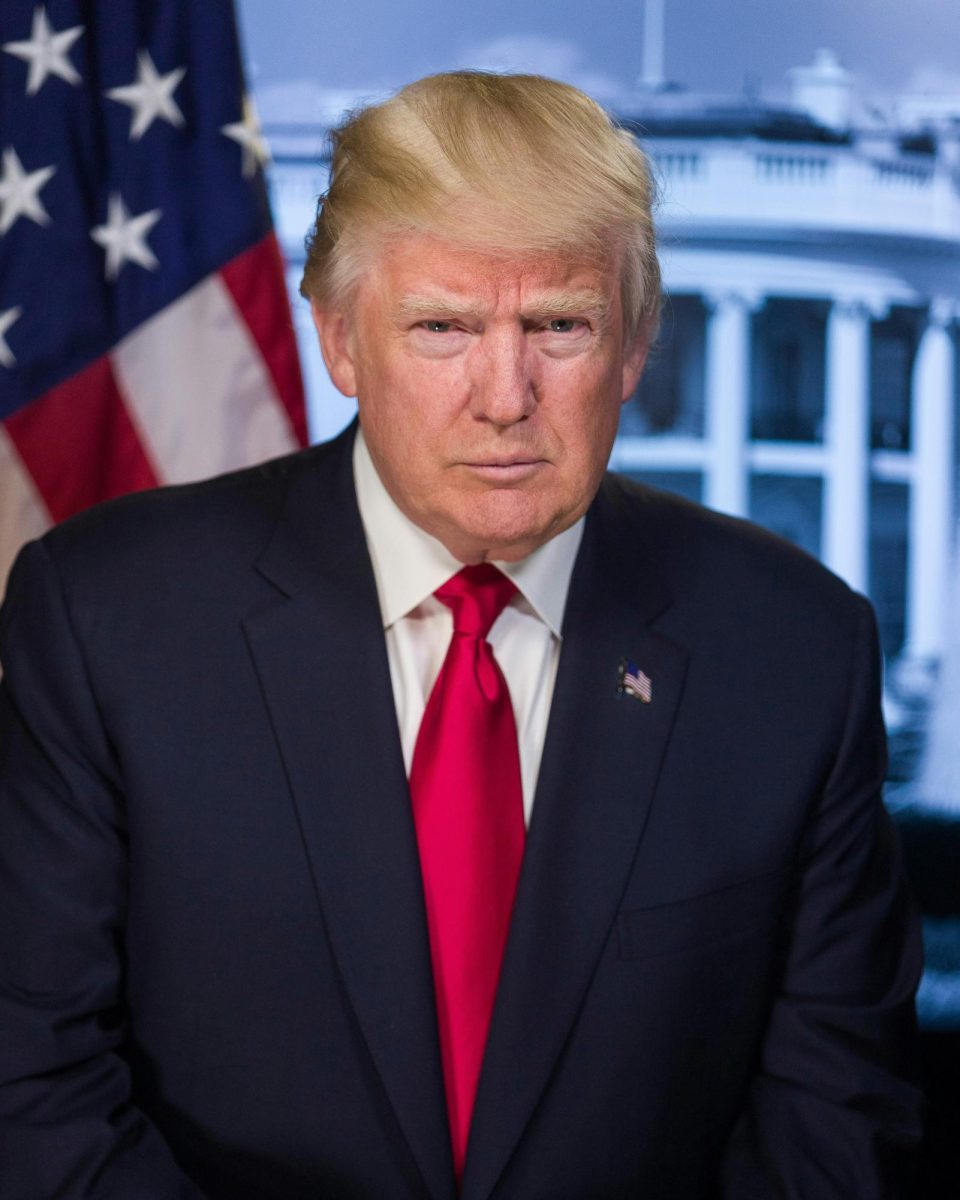On a hot July day 248 years ago, 56 delegates declared the United States of America an independent nation, uniting the 13 colonies in a commitment to liberty, justice, and peace. But this July, the six conservative justices of the Supreme Court turned their back on that commitment, shielding former President Donald Trump, and all future presidents, from the rule of law — from accountability.
The Court ruled on July 1st in Trump v. United States that criminally prosecuting a president for any “official actions” they took while in office is unconstitutional. The decision rips through the fabric of America’s democratic intuitions, placing the president above the law and recklessly expanding executive power.
In the 6-3 ruling, Chief Justice John Roberts delivered the majority opinion, declaring that “the system of separated powers designed by the Framers [of the Constitution] has always demanded an energetic, independent Executive. The President therefore may not be prosecuted for exercising his core constitutional powers.”
Central to Roberts’ opinion was the separation of powers doctrine, a structure of government that the Framers clearly lay out in the Constitution. The separation of powers ensures that each branch of government — the executive, legislative, and judicial — are fully independent from the others. This enables each branch to carry out their Constitutional duties without interference or influence by other branches of the government.
Roberts argued that criminally prosecuting a president obstructs the separation of powers, as the judiciary could influence executive decision making through the threat or action of prosecution. To the conservative bloc, judiciary influence on executive decision making directly contradicts the beliefs of the Framers, as they believe the president is intended to be a strong, decisive figure. “The Framers ‘sought to encourage energetic, vigorous, decisive, and speedy execution of the laws by placing in the hands of a single, constitutionally indispensable individual the ultimate authority,’” Roberts said, citing Alexander Hamilton’s Federalist No. 70.
This is just one of many Federalist Papers that Roberts pointed to in order to defend a ruling that greatly expands executive power. Clearly, Roberts and the five other justices that make up the Court’s conservative supermajority agree with Hamilton’s argument that a powerful, central executive is necessary for the functioning of the government. The logic behind their opinion is that without immunity, fear could be implanted in their president, subsequently inhibiting their ability to make decisive, forceful decisions.
However, one simple question dismantles the conservative bloc’s entire argument: why do presidents need immunity from the law if they would never break it to begin with?
If a president abides by their Constitutional duties, they would never engage in criminal activity, and thus, should not need immunity. Trump’s concern was that, without immunity, presidents could face “political prosecution” — as he said he faced with the four indictments surrounding his alleged attempts to subvert the presidential election on January 6, 2021.
Even so, if a president faced a political prosecution from an opponent, they still should not need immunity. Surely, if the allegations were merely fabricated to threaten the president, they would not stand in court. Thus, with proper due process — a right that is given to every citizen in the Bill of Rights — a president should not have to worry about political prosecutions.
Therefore, if the president legally carries out their duties, as the Constitution requires them to do, they should not feel threatened. Either they are not prosecuted, or the false allegations do not stand a trial.
So again the question arises: why do presidents need immunity from the law if they will not break it?
They do not. It is as simple as that.
Only a president who has — and possibly plans to again — break the law would seek immunity from criminal prosecution. Only a president who asked his vice president to stall the electoral count in Congress would seek immunity from criminal prosecution. Only a president who tried to find fake electors to give him additional votes would seek immunity from criminal prosecution. And only a president who told a large crowd of his supporters to march to Congress and “fight like hell” to stop a “fake election” would seek immunity from criminal prosecution.
It is as simple as that. A lawful president does not need immunity. In fact, despite what Roberts argued, the Framers intentionally did not give presidents immunity in the Constitution. Justice Sonia Sotomayor pointed this out in her dissent, saying, “the Framers clearly knew how to provide for immunity from prosecution. They did provide narrow immunity for legislators in the Speech or Debate Clause…They did not extend the same or similar immunity to Presidents.”
Additionally, Sotomayor asserts that at the time of the drafting of the Constitution, some state constitutions provided “express criminal immunities” to sitting governors. However, “the Framers chose not to include similar language in the Constitution to immunize the President,” Sonomayer said.
Clearly, the Framers were well aware of immunity while drafting the Constitution, but nowhere in the Constitution did they ever imply presidential immunity. With that said, the conservative bloc’s decision to give Trump, and all future presidents, immunity is unconstitutional. It gives unprecedented, unchecked power to the president, which is especially concerning given the Republican’s presidential candidate, who could likely win the election come November, is a convicted felon.
In 1776, when the 56 delegates met in Philadelphia, they justified their revolution by pointing to the many years of King George II’s unjust despotism. “The history of the present King of Great Britain is a history of repeated injuries and usurpations, all having in direct object the establishment of an absolute Tyranny over these States,” the Declaration of Independence stated. The U.S. was founded on the promise that tyranny would never again oppress Americans. But now, following the Court’s decision to give immunity to the country’s most powerful person, that promise seems more at risk than ever has been before.
Sotomayor sums it up well at the end of her dissent when she paints a dark picture of the future of presidential power: “Orders the Navy’s Seal Team 6 to assassinate a political rival? Immune. Organizes a military coup to hold onto power? Immune. Takes a bribe in exchange for a pardon? Immune. Immune, immune, immune.”
Does that sound like democracy? No, it does not.









